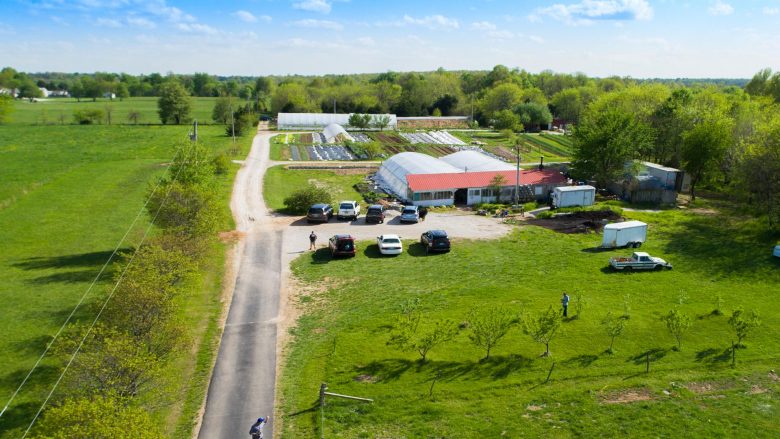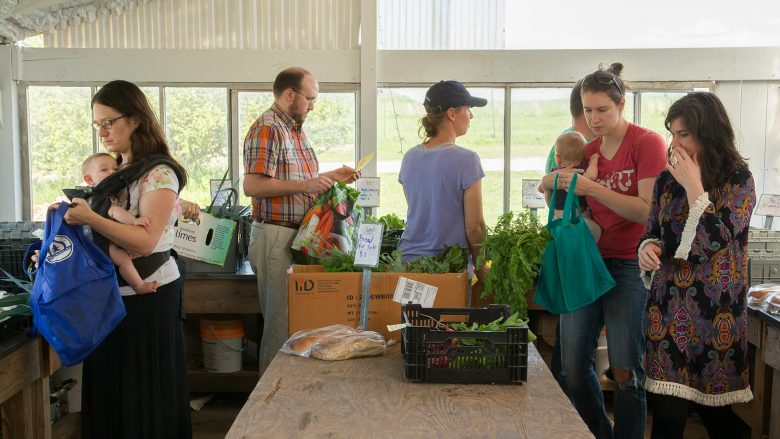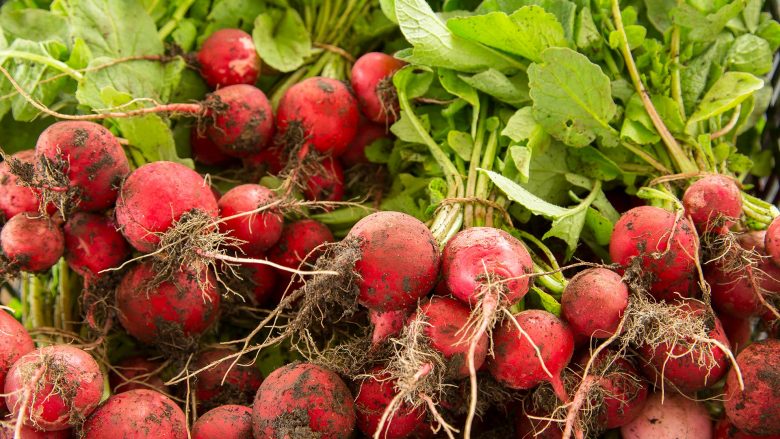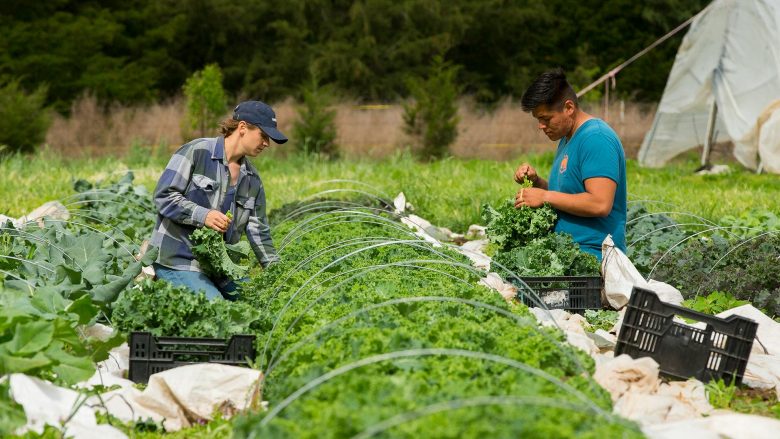Sustaining local agriculture for economic growth
Their work and stories intrigued him, ignited his passion for agriculture and led him to study agricultural economics in the United States, which changed the course of his career.
“Agriculture brought me to real people and their problems,” said Rimal, a professor of agriculture and interim department head of agribusiness, education and communication in the Darr College of Agriculture at Missouri State University.
His research interest is in applying economic theory in the food industry from both production and consumption perspectives. His accounting and finance background is an asset as he works to advance agriculture and economic growth in Missouri.
“In recent years, I’ve been working on the area of locally grown produce,” said Rimal, who has received more than $700,000 in external grant awards for his research.

An aerial shot of Millsap Farms, a family-owned 20-acre farm in Springfield, Missouri. Photo by Bob Linder
Establishing a food hub
His latest project impacts farmers directly as he explored how to get produce from a farmer’s field into a consumer’s hands more efficiently by studying the feasibility of setting up a food hub – a marketplace that connects farmers (producers) with professional food buyers, such as schools and grocery stores, and end consumers – in southcentral Missouri.
Funded by the United States Department of Agriculture Rural Development program, the project took more than a year to complete as Rimal and his team of two graduate assistants, Jennifer Muzinie and Jennifer Moldovan, interviewed 163 producers and 101 buyers in the region.
“There’s a national recognition of supporting food hubs as they can really help rural development because a lot of producers are in the rural area and they have challenges marketing their product,” said Rimal. “We wanted to see whether a food hub will stimulate the economy in this area, whether buyers are willing to buy from it and producers are willing to supply to it.”

Participants of the community-supported agriculture program at Millsap Farms select produce. Photo by Bob Linder
What do producers and buyers want?
So is a food hub feasible in this region? Absolutely, according to the findings of Rimal’s study.
“There’s a huge demand for locally produced food and buyers are willing to buy locally grown vegetables and livestock products and pay a premium for them as long as producers comply with certain requirements, such as food safety, consistency in delivery and traceability,” said Rimal.
As for the producers, the majority of them expressed interest in selling through a food hub. Of course there are challenges, such as investment of time and money to comply with buyers’ requirements or use more technology for year-round yield, Rimal noted, but he believes the benefits of a food hub outweigh the costs.

The benefits
For farmers, a food hub means less waste, greater productivity, assurance of sales and time savings.
“They don’t have to sit at a farmers market the whole day and spend their time marketing as somebody else is doing that for them,” said Rimal.
For consumers, a food hub offers easier access to a larger variety of fresh healthy foods all year long and the opportunity to support local and regional food systems. This means they contribute to environmental sustainability.
“We don’t have to eat produce that’s coming from thousands of miles away from another country,” said Rimal. “We can help improve the lives of local farmers and decrease our own carbon footprint.”

Farmers harvest produce at Millsap Farms. Photo by Bob Linder
Moving forward
He and his team have presented this research not only in the United States but also in Europe at the International Food and Agribusiness Management Association World Conference 2016 in Aarhus, Denmark.
“I’m excited about using my knowledge and technical skills in an area where it really matters. This kind of stuff has real meaning for people at the grassroots level. It can impact people’s lives.” — Dr. Arbindra Rimal
Moldovan, who interviewed a lot of the buyers, presented her part of the research at the conference. She said working on the project was a learning experience as she did not know much about food hubs going in.
“Probably the most interesting thing we found through our data was the overall acceptance of local because sometimes you don’t think bigger companies and institutions even really care,” said Moldovan. “But doing the research, we found out the different ways they are trying to support local even if they are not able to purchase because of all the regulations.”
Based on the positive findings from the study, Rimal said he is ready to continue working on making the food hub a reality. He has asked the USDA Rural Development program to fund the next part of the research, which involves developing a detailed business plan.
“I’m excited about using my knowledge and technical skills in an area where it really matters,” he said. This kind of stuff has real meaning for people at the grassroots level. It can impact people’s lives.”
- Story by Emily Yeap
- Photos by Bob Linder
- Video by Chris Nagle


I like the story, but I find it very odd that there is no mention of the farm which provided most of the video and all of the pictures.
Good information on local food production in southwest Missouri. It will be interesting to see where it goes in the future. Is there certain number of producers needed to get a food hub operational? How does CSA and food hub relate, the same or different? Do we need to teach practical small scale agriculture production and business in college to get this to move forward?